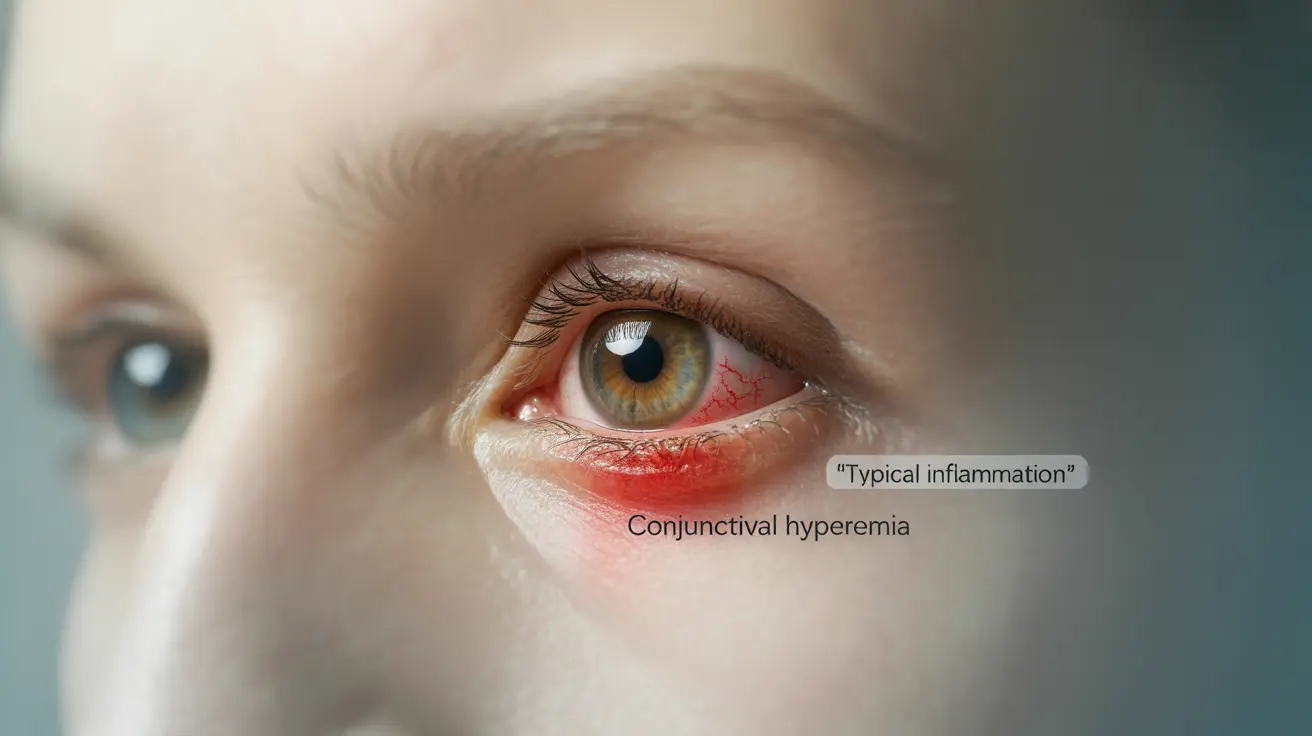If you're experiencing persistent itching in the corner of your eye, you're not alone. This common and often frustrating symptom can arise from various causes, ranging from simple environmental irritants to more serious medical conditions. Understanding the root cause of your itchy eye corner is crucial for finding effective relief and preventing potential complications.
Let's explore the common causes, symptoms, treatments, and prevention strategies for dealing with an itchy eye corner, helping you determine when to try home remedies and when to seek professional medical attention.
Common Causes of Eye Corner Itching
Several factors can trigger itching in the corner of your eye:
Allergic Reactions
Seasonal allergies, pet dander, and dust mites often cause itching, particularly in the corners of the eyes. These allergens can trigger histamine release, leading to inflammation and irritation.
Dry Eye Syndrome
Insufficient tear production or poor tear quality can cause eye irritation, particularly noticeable in the corners. This condition often worsens during computer use or in dry environments.
Infections
Bacterial or viral infections, including conjunctivitis (pink eye), can cause itching along with redness and discharge. These conditions may affect one or both eyes and require specific treatment approaches.
Identifying the Source of Your Eye Irritation
Allergy Symptoms
Allergic reactions typically cause:
- Bilateral eye involvement
- Watery discharge
- Accompanying nasal symptoms
- Seasonal patterns
Infection Indicators
Look for these signs of infection:
- Thick or colored discharge
- Redness
- Light sensitivity
- Pain or burning sensation
Dry Eye Characteristics
Dry eye typically presents with:
- Sandy or gritty feeling
- Worse symptoms as the day progresses
- Discomfort during digital device use
- Morning eye irritation
Treatment Options and Relief Measures
Home Remedies
Several at-home treatments can provide relief:
- Clean eyelids gently with warm compresses
- Use artificial tears for lubrication
- Practice good eye hygiene
- Remove contact lenses when experiencing symptoms
Medical Treatments
Professional treatment options include:
- Antihistamine eye drops for allergies
- Antibiotics for bacterial infections
- Prescription eye drops for chronic dry eye
- Anti-inflammatory medications when needed
Prevention Strategies
To minimize eye corner itching:
- Use air filters to reduce allergens
- Take regular breaks from digital devices
- Stay hydrated
- Avoid touching or rubbing your eyes
- Keep contact lenses clean and replace as scheduled
When to See a Doctor
Seek medical attention if you experience:
- Severe pain or vision changes
- Persistent symptoms lasting more than a week
- Thick, colored discharge
- Significant swelling or redness
- Light sensitivity
Frequently Asked Questions
- What are the most common causes of itching in the corner of the eye?
The most common causes include allergies, dry eye syndrome, eye infections, and environmental irritants. Allergies and dry eye typically affect both eyes, while infections may start in one eye before spreading.
- How can I tell if my itchy eye corner is due to allergies, dry eye, or an infection?
Allergies usually cause watery discharge and affect both eyes with seasonal patterns. Infections often produce thick, colored discharge and may start in one eye. Dry eye typically feels gritty and worsens throughout the day.
- What treatments are effective for relieving itchy eyes caused by dryness or allergies?
For dry eyes, artificial tears and warm compresses can help. Allergies respond well to antihistamine eye drops and environmental modifications. Both conditions benefit from good eye hygiene and avoiding eye rubbing.
- When should I see a doctor for persistent itching or swelling in the inner corner of my eye?
Consult a healthcare provider if symptoms persist beyond a week, if you experience severe pain, vision changes, thick discharge, or significant swelling. These could indicate a serious condition requiring medical treatment.
- How can I prevent or reduce itching in the corners of my eyes caused by environmental irritants?
Use air filters at home, practice good eye hygiene, take regular breaks from digital devices, stay hydrated, and avoid touching your eyes. When outdoors, wear protective eyewear to minimize exposure to irritants and allergens.




